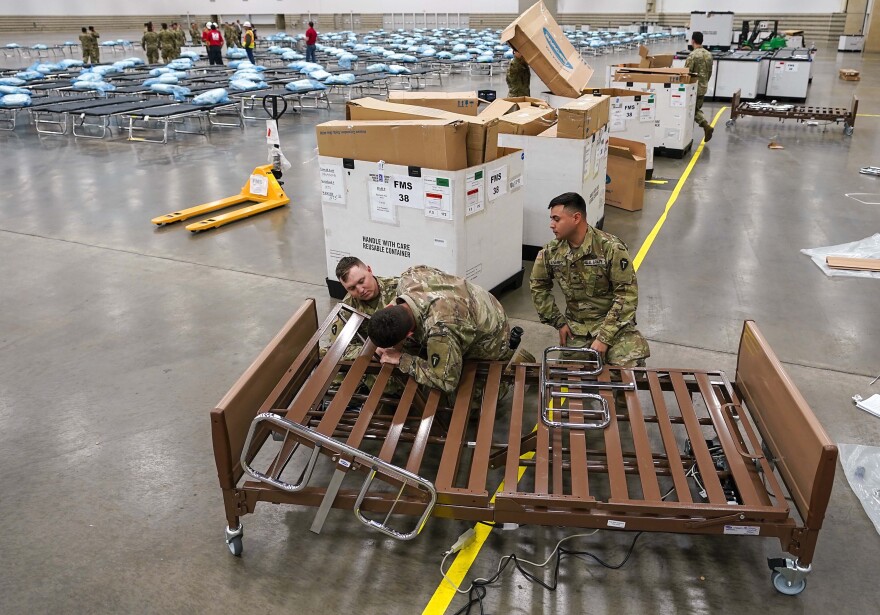It's all hands on deck in the quest to cope with the coronavirus. Scientists, governments, nonprofits, retired doctors are all scrambling to help. So are data scientists — like those at the Parkland Center For Clinical Innovation.
The nonprofit is using its know-how to crunch data on COVID-19 and give medical professionals the info they need to screen, test, and treat patients. We talked with with Steve Miff the president and CEO of PCCI. Listen to the full interview or read highlights below.
On how PCCI is helping fight COVID-19:
First and foremost, we're receiving daily data feeds of confirmed COVID-19 individuals across Dallas County.
We take that information, geocode it and then provide that back as heat maps to Dallas County Health and Human Services and other local authorities to help them communicate with the general public and as they coordinate efforts across the various local entities.
On how geocoding plays a role:
The first step of the geocoding identifies the address of an individual that was confirmed for COVID-19 and plots that on a map. Obviously we do not share that information externally. All the data that's being shared externally is aggregated to maintain individual confidentiality.
But then by having that comprehensive map across the whole geography, we're able to identify where emerging hotspots pop up. With a proximity risk score, using machine learning algorithms, what we're able to do is generate various radii from those individuals who are confirmed. Then we're able to create an analytical model to identify what the risk is for others who are in that proximity.
Here's how it's being used at the point of care, with any individual who sees the schedule for a primary care visit or is showing up in the emergency department: We're able to geocode them back to where their home is, and then we can look up in real-time the proximity risk score. We can then tee that up to the frontline clinicians to have as an additional point of information as they evaluate, screen and determine the right course of action for that individual.
On how they're helping determine needs for hospitals, like ventilator and ICU beds:
That's a pretty tricky exercise. We've developed a predictive forecasting model first for Parkland, working really closely with the Parkland I.T. team to predict and anticipate capacity for general beds, for ICU beds and for ventilators.
We've actually curated information from a dozen other models that have been developed in other parts of the country. We've significantly looked at other national, international studies and really customized and adapted that for this local geography and for Parkland.
We took a bit of a different approach by actually looking at and evaluating, first, mortality and then translating that back into determining ICU needs such as beds and ventillators.
Then we base the models on the number of confirmed cases, second, only because that number is limited by the amount of screening that's being performed.
Interview highlights were lightly edited for clarity.





